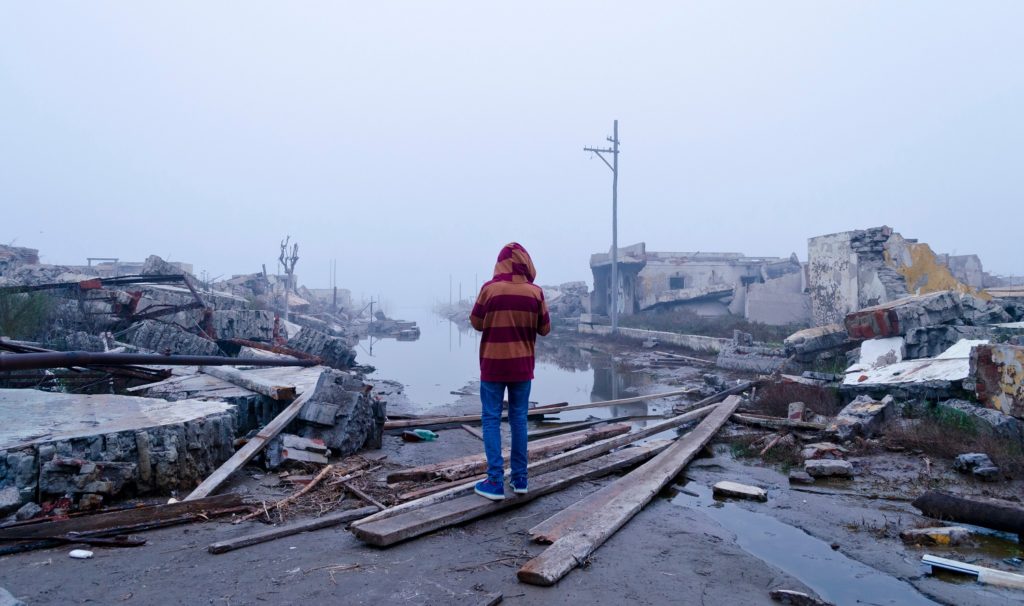A coronavirus emergency plan in five steps: “People want to know if they can go to work”
It wasn’t a matter of whether the coronavirus would hit the Netherlands, but when. Now that the number of confirmed cases has risen to more than 382, measures are taken and crisis preparations are made. Can emergency response protocols for natural disasters help combat the virus? Univers asked crisis and disaster response expert Kenny Meesters.

Kenny Meesters, a lecturer in information management at Tilburg University and a disaster response specialist, is the first to point out the dissimilarities. A globally spreading virus is a different kind of crisis than a natural disaster with a local impact. Consequently, these types of crises require a different response.
“An earthquake or a tsunami is an incident relating to a specific location and a specific moment. Emergency response teams act on the basis of that information,” Meesters says.
“Because the coronavirus is contagious and infections are scattered around the world, an effective response to the virus is a lot less straightforward than traditional crisis response strategies. With every new patient, there is a new incident. These incidents all require a response, while at the same time preventive measures must be taken to contain the virus from spreading further.”
Nevertheless, disaster protocols may prove to be helpful now that the coronavirus is spreading across the Netherlands. The government, inhabitants and Tilburg University can all learn lessons from disaster responses. Here are five steps to a coronavirus crisis response plan.
1. Set a threshold
“Precautionary measures such as the cancellation of events or the closure of schools are an option. In doing so, it is important to think ahead and to consider when to remove those emergency measures and get back to normal. This is what we call a ‘threshold’ in crisis management—it’s the point at which safety has been restored and emergency measures no longer need to be in place.
“After a large fire, residents may be urged to close their doors and windows and to open them again only when toxins in the air have reached a certain level. In response to the coronavirus, such a threshold level is a lot more difficult to determine—it’s virtually impossible to know when the maximum number of infections has been reached.”
2. Provide local information
“The RIVM currently provides a daily update about newly confirmed cases of the coronavirus, publishing maps that show in which regions patients live. I understand that more patient details are not shared with the general public. Patient privacy is a top concern, and we don’t want patients to become the target of public anger over the spreading of the virus.

“At the same time, the need for detailed information is high in times of crisis and uncertainty. To give consideration to the public need for information about the coronavirus, it’s important to establish an information system early on through which local organizations, such as the GGD, the municipality or even employers, offer personalized advice.
“In the end, that’s what people want—to know whether they can still go to work and whether they need to change their vacation plans.”
3. Involve employees (and students)
“In my work, I encounter a lot of civic initiatives. Families who offer shelter to victims of natural disasters, for example. In emergency situations, bottom-up ideas and solutions always spring up. That’s why I would advise organizations to not only provide guidelines and recommendations, but to also start a conversation.
“For Tilburg University, employees as well as students should be included in that conversation. They know the concerns people have better than anyone, and they can come up with creative solutions. A researcher who is stuck in a locked-down city overseas or students who are hesitant to follow lectures in a small classroom with many others, for example, could help set up digital classes.”
4. Don’t be selfish
“Stocking up on supplies is tempting, especially when you see others around you do it. But my advice is to think beyond your individual situation, and to consider other people too. A run on certain products, such as soap, not only causes competition among shoppers—who collects the most goods?—but also creates shortages.
“Stocking up disrupts supply chains, eventually leaving us all with a problem”
“In an ideal scenario, emergency response teams bring supplies from a region where there is a surplus to a region where there is a shortage. Let’s take the example of face masks: if a hospital runs out of stock, new supplies can come from elsewhere.
“But when face masks become unavailable to medical workers because individuals are stockpiling them, those medical workers are at a greater risk to contract the virus, which means they cannot give treatment to others. This, in turn, only leads to more illness. So you can see that stocking up on goods disrupts supply chains, eventually leaving us all with a problem.”
5. Learn from the situation
“In a crisis situation, things that remain invisible under normal circumstances may suddenly become very evident. The vulnerability that comes with the aftermath of a disaster encourages people to rethink their daily routines. Even though a disaster can be extremely tragic, it can also serve as a reset button. For example, the necessity for video lectures is now being talked about. It’s possible that this may continue to be a topic of discussion once the dust has settled.
“You can compare the current situation with a student whose printer stopped working. When she needs to hand in a paper but her printer is failing, that’s a crisis. Afterwards, she wonders whether she should replace her printer with a new one. Or she might start lobbying for the option to hand in papers digitally. We should use a crisis situation as a learning opportunity.”






